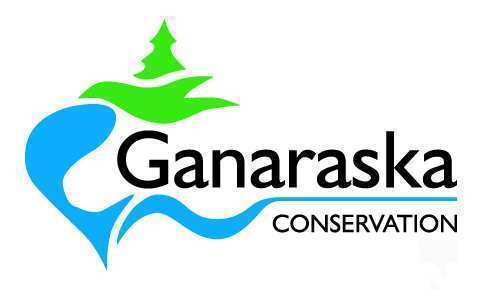In 2020, Ganaraska Region Conservation Authority (GRCA) staff discovered that the East Forest of the Ganaraska Forest was almost completely defoliated by Gypsy Moth. This area of the Forest is known for its oak stands, including its ability for growing White Oak; a species which occurs less commonly throughout the other sections of the Forest.
The severe defoliation event is a major concern for two reasons. First of all, defoliation of 50% or greater over repeated years can cause mortality of healthy trees. Unfortunately, follow-up observations of new egg masses in this area suggest another year of significant Gypsy Moth populations. With a subsequent large population set to feed on an already stressed system, it could lead to mortality in the wildlife-favoured Red Oak and White Oak population. Secondly, with the decrease in the oak leaf availability due to the 2020 feeding, Gypsy Moths will begin to feed on other species, including White Pines. Unlike their deciduous oak counterparts who store their starch energy reserves in their roots and trunk, conifers, like White Pine, store their starch reserve in their needles; meaning, once defoliated, these species are significantly more likely to die.
In order to protect the critical areas of the Ganaraska Forest, GRCA has hired Zimmer Air Services to help with the management of Gypsy Moth. With a forest that is heavily infested with egg masses, the most effective large-scale management efforts are best performed through an aerial spray. The aerial spray will not completely eradicate the Gypsy Moth, but it will lower the feeding stress enough to allow the trees to survive until the population naturally collapses.
In early spring of 2021, Zimmer Air Services Inc. will administer the aerial spray program using a twin engine helicopter to apply the biological pesticide Foray 48B Biological Insecticide Aqueous Suspension. The active ingredient in the spray is Bacillus thuringiensis v. kurstaki (Btk), which is a bacterium that occurs naturally on dead or decaying soil matter. This bacterium targets pests with alkaline stomachs, and has been used to control caterpillar pests such as Gypsy Moths for over 30 years. When ingested, Btk triggers the release of a crystalline protein which poisons the insect. Since the bacterium is only dangerous when ingested by an alkaline system, there are no negative impacts on human or other wildlife with acidic stomachs. More information on Btk is available on the Government of Canada’s website.
If you are interested in mobilizing with the GRCA for an aerial spray of your property, please contact Zimmer Air Services Inc. directly. In order to take part in this program, your tax roll number to map the area will be required. Orders are due by March 31, 2021, but are recommended earlier due to high demand.
For further information on the invasive Gypsy Moth, view GRCA’s factsheet or contact Watershed Biologist Lindsay Champagne at 905.885.8173 ext 229 / lchampagne@grca.on.ca.






















